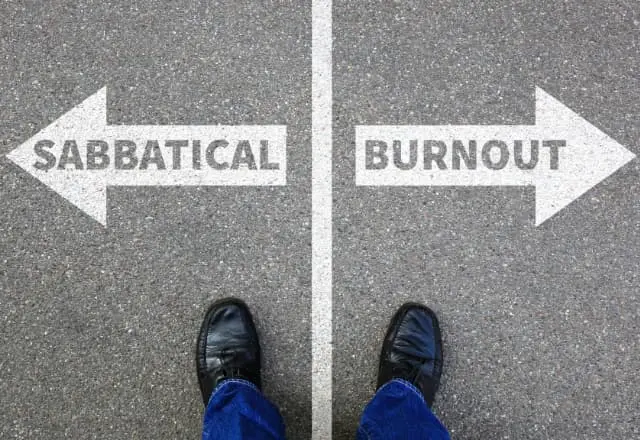Feeling burnt out? Need a really long vacation and simply have as the main task of the day shopping at the local grocery store? People take long vacations for many reasons – travel, hobbies, research, volunteer activities, or the aforementioned burnout.
What is a sabbatical?
This is usually an unpaid leave of absence ranging from 3 months to 1 year. Some companies abroad have some form of sabbatical as a benefit for loyalty. It is true, however, that in most countries sabbaticals are not covered by legislation – so it is only a matter of employer goodwill.
Sabbatical comes from the Middle East and means the seventh day, respectively. day of rest. Universities were the first institutions to introduce unpaid leave – specifically Harvard back in the 1880s!
It was the campus that essentially forced the sabbatical. Many researchers and professors did not have time for their own research alongside their students.
However, a distinction must be made between long leave and unpaid leave. The goal of the vacation is to rest and the worker will come refreshed and re-energized. A person is expected to come up with innovative ideas, research, invention, creativity that will carry the company for months or years to come after the sabbatical.
What are the benefits of a sabbatical?
- Reduces the risk of burnout
In 2011, a survey in South Korea found that taking a month off for professionals reduced burnout syndrome and increased overall health, organizational commitment, and sense of well-being.
- Unpaid long leave leads to innovative discoveries
Professors in the past and, to a greater or lesser extent, the visionaries of today, come to new insights or innovations thanks to sabbaticals.
- Helps retain staff
Intel has unpaid leave as one of its benefits. It is awarded only after 5 or more years of service with the company. Employees have a “countdown” to the first Sabbath on their office walls.”
- It is a powerful recruitment tool
In Slovakia, this benefit is not yet so widespread, but in the USA, a survey was conducted where up to 2/3 of employees said that the company’s sabbatical program is one of the most desired benefits.
- Demonstrably can improve team productivity
You need to fill a position during your employee's sabbatical. We have a solution for you - write to us.
What are the risks of a sabbatical?
In addition to the benefits, unpaid leave comes with its risks:
- The employee may resign. However, this can be resolved by writing an addendum to the employment contract that obliges the employee to stay with the company for a certain period of time under any circumstances.
- Offering paid sabbaticals can have a serious economic impact on a company.
- Redistribution of tasks among other team members
- Identification of a temporary employee from within the company or from an external environment who will perform the role of a colleague on leave for a limited period of time only
- The adaptation process after returning from a long holiday and the possible onset of depression
Long-term leave without pay is not for everyone – it’s also about finances. The possibilities of short-term sabbaticals in Slovak conditions are proving to be a quite suitable solution to avoid burnout or, on the contrary, to bring innovation to the company.
Among the well-known Slovak “sabaticalists” are Dalibor Jakuš from Profesia.sk, Michal Truban from Websupport, and Petra Tóth.






